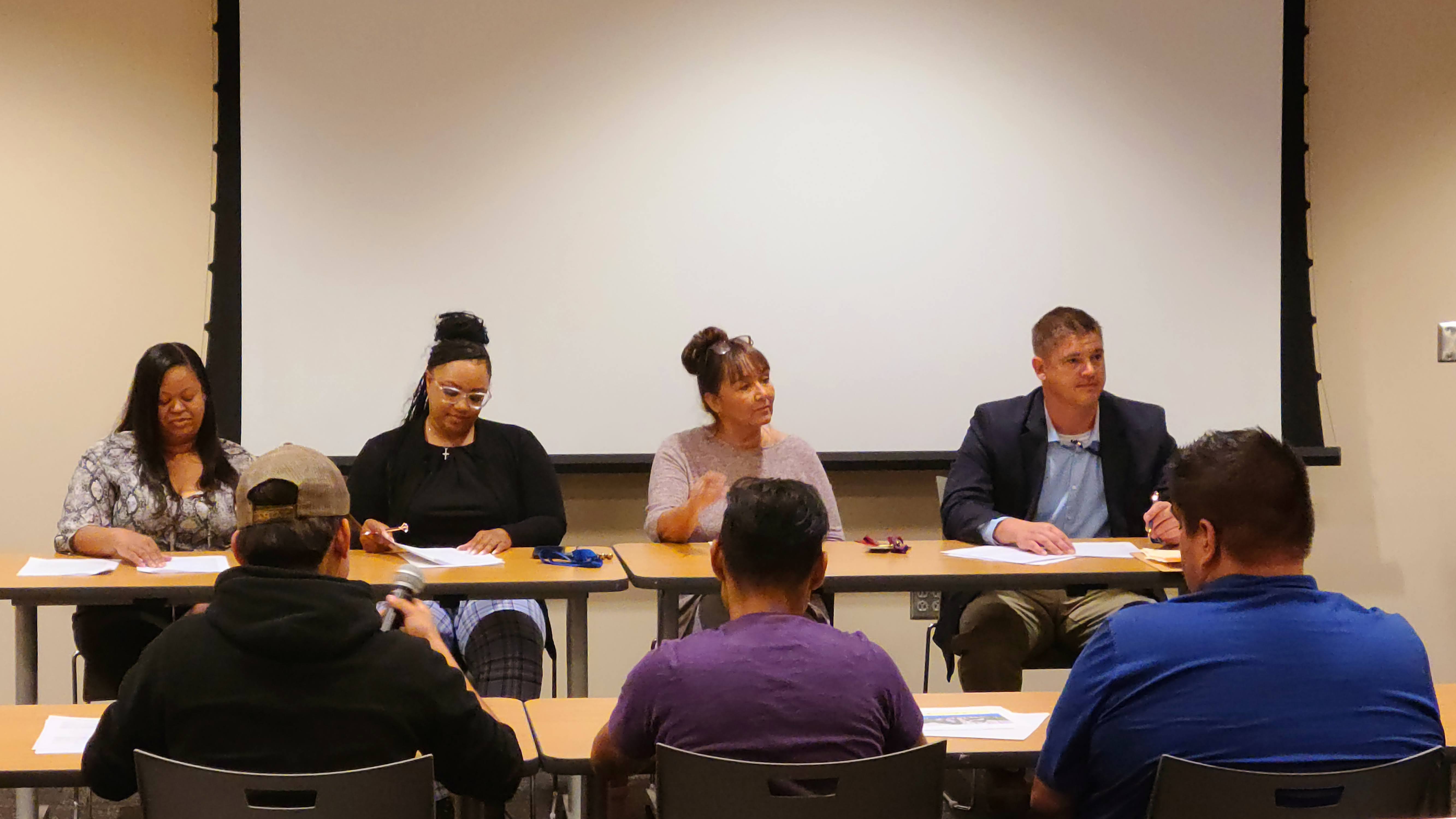STEM Bootcamps engage students at community colleges in Kansas

Thanks to a multi-year government grant from Intelligence Community Centers for Academic Excellence (IC CAE), KUEC offers up to $5,000 a year for two years in scholarships and professional development opportunities to eligible students pursuing one of five STEM degrees–biotechnology, information technology, cybersecurity, health sciences, and criminal justice.
To promote the IC CAE program and to encourage students to consider STEM degrees, KU faculty teamed with three community colleges in western Kansas to host a day-long STEM bootcamp in Dodge City on June 20 that attracted attendees from Seward County Community College, Garden City Community College, and Dodge City Community College, as well as high school students from the surrounding areas.
A second bootcamp was presented on June 27 at Kansas City Kansas Community College for students in the KC Metro.
KU faculty worked with the community colleges to create an engaging and interactive day that demonstrated the breadth of options open to people with these degrees.
Students encountered and reacted to a simulated national security crisis, Epidemic at the Central County Water Park. In this simulation, local hospitals were being overrun with patients experiencing sudden symptoms of an unknown infectious disease. Students were challenged to uncover what was making people sick. Where were they infected? Was this the result of a nefarious act?
Students divided into teams focused on three career sectors: biotechnology, cybersecurity and IT, and health sciences. Within these teams, they analyzed data and utilized specialized scientific tools to investigate evidence related to the epidemic.
The biotechnology team reviewed data collected from the reported cases and water park sites, analyzed information, evaluated molecular evidence, and identified potential pathogens and suspected sources using bioinformatic tools. The health science team built an epidemiological case definition by looking at the medical evidence and locations of the outbreak. The cybersecurity and IT team reconciled epidemiology data with laboratory and environmental findings and tracked movements of patients and suspects using recorded GPS tracking data.
A highlight of the day occurred when the teams gave testimony and answered questions about their findings at a mock congressional hearing.
“It wove the evidence and conclusions of each group together into an understandable story that connected the outbreak of illness to infection by a specific pathogen at a specific time and location in the waterpark all caused by one individual’s actions,” said Jack Treml, Ph.D., assistant director of KUEC biotechnology program and associate professor of the practice.
In addition to developing new scientific skills, students learned more about how the IC CAE program can enhance their professional development and launch their career within the U.S. Intelligence Community.
“This partnership between KU and the community colleges allows us to foster in-state talent and deliver exclusive opportunities for Kansas students. With the exception of the biotechnology program, all STEM degrees showcased in this bootcamp are fully-online programs, making them highly accessible for eligible students throughout the state.” said Randy Logan, Ph.D., program director of biotechnology and professor of the practice.
For more information or to inquire about the STEM degrees, the IC CAE program, and the scholarships available, contact Ashley Urban at ashleylu@ku.edu.





